
Tallinn
Estonia
It has a population of more than 460,000, and the Facts of Tallinn 2024 lists its metro GDP at €18.7 billion (~$20.8 billion). Tallinn’s global visibility has soared in recent years, outperforming larger capitals across the continent. The StartupBlink Global Startup Ecosystem Index 2025 ranks it as the ninth best startup ecosystem in the EU.
It is the city's strong digital infrastructure and bold public-sector innovation policies that position it as a testing ground and launchpad for globally scalable ventures. A digital-first business environment, Estonia pioneered digital governance long before it became a trend. In 2014, the country introduced e-Residency, allowing global entrepreneurs to register and operate an EU-based company entirely online. This infrastructure is complemented by the Startup Visa and Nomad Visa programs, which provide fast-track entry routes for foreign founders and remote workers, helping make the city a leader in employment, revenue and venture investment. Tallinn alone accounts for nearly 70% of all startups in the country.
Three major innovation districts – Tehnopol, Telliskivi Creative City and Ülemiste City – combine technology, creativity and infrastructure. Tehnopol, Estonia’s largest science park, is home to over 200 companies including Bolt and Starship Technologies. It offers incubator programs, coworking space, research labs and startup advisory services. Telliskivi Creative City, based in a former industrial area, houses over 300 creative businesses and hosts nearly 1,000 events per year. And Ülemiste City is a future-focused urban environment where 18,000 people from more than 73 countries work, study and live. Over 400 companies do business here, earning more than €2.5 billion (~$2.8 billion) per year. Based on the labor tax from business ventures, it follows Tallinn and Tartu in its contribution to the Estonian economy.
A rising force in European innovation
Tallinn’s ecosystem has grown by more than 34% year on year, and StartupBlink 2025 places Estonia 11th in the world in terms of startup ecosystem performance and second globally in the transportation sector. This is due in part to the success of Bolt, one of the country’s flagship unicorns. Other notable ventures headquartered or launched in Tallinn include Veriff (identity verification), Pipedrive (sales automation) and Starship Technologies (autonomous delivery robots).
The city's status as Eastern Europe’s second-strongest startup ecosystem is reinforced by its proximity to policymakers and by the agility of its digital infrastructure. According to StartupBlink, Tallinn has nearly 21 times the startup ecosystem score of Tartu, Estonia’s second-largest city, underlining its national dominance.
Infrastructure and support
Tallinn’s compact geography enables fast access to institutions and stakeholders, while its national systems, such as fully digital tax filing, online company registration and universal digital ID, streamline operations for founders. Infrastructure investments continue to support its growth, including a €25 million (~$28 million) upgrade to Ülemiste City.
Public funding and early-stage acceleration are key parts of the landscape. Organizations such as the Estonian Business and Innovation Agency provide equity-free grants, business development support and export incentive; Prototron helps founders turn ideas into prototypes with equity-free funding; and Startup Wise Guys, one of Europe’s most active early-stage investors, operates from Tallinn and has supported over 440 portfolio companies across the continent.
More than 30% of Tallinn’s residents speak at least three languages, and English is widely used in business, tech and academia. The city hosts major innovation events, including Latitude59 and Impact Day, attracting thousands of founders, investors and policy influencers each year.
Estonia is also exploring frontier technologies. New state-funded initiatives support defense tech startups through the Estonian Defence Industry Association, while Tallinn is involved in EU-level efforts on AI and cyber resilience.
The national Work in Estonia program has doubled the international talent pool over the last five years, targeting IT and scientific professionals. These efforts contribute to a highly skilled and internationally mobile workforce, one of the country’s strongest assets.
Culture, life and connectivity
Tallinn is one of Northern Europe’s most culturally layered cities. The UNESCO-listed Old Town preserves the architecture of the Hanseatic League era, while contemporary venues such as Fotografiska and the Telliskivi Creative City showcase local design, art and performance. The city has more than 40 museums, almost as many theatres, 20 concert halls and 7 cinemas, and many venues cater to the international population with English-language performances or subtitles; for example in theaters like Theatrum and through initiatives such as the Tallinn Fringe Festival. Artis and Ülemiste Apollo, two of Europe’s most modern cinemas, regularly screen international films in their original language with subtitles. Seasonal events, such as Tallinn Music Week, Jazzkaar and the Black Nights Film Festival, draw artists and audiences from across Europe, reinforcing Tallinn’s status as a northern cultural capital.
The city is also exceptionally walkable, with most venues reachable within a 15-minute walk from the city center. Public transport is free to use for residents, and more than 75% of public services are accessible online. Tallinn is also the most visited cruise destination on the Baltic Sea, with direct ferry links to Helsinki and Stockholm and a growing list of international air connections through Tallinn Airport.
Facts and Figures
Tallinn is one of the European capitals with the cleanest ambient air, and worldwide, it ranks among the cities with the least fine-particle concentration (2024 World Air Quality Report).
As of 2024, there are more than 1,400 startups registered in Tallinn (Startup Estonia).
e-Residency has enabled over 109,000 entrepreneurs to launch Estonian companies (e-resident.gov.ee).
The Work in Estonia program doubled international talent intake between 2018 and 2023 (Estonian Business and Innovation Agency).
In 2023, Tallinn's free public transport for residents supported nearly 132.8 million passenger trips.
At least 79% of Tallinn residents live within 300 meters of a public park. Public green spaces make up more than 26% of the city, equating to 92 square meters of parkland per resident (Facts of Tallinn 2024)
Startups


Bolt is a mobility platform providing ride-hailing, scooter and ebike sharing, food and grocery delivery, and car rental services in 50 countries. Bolt’s services connect to existing modes of transport, aiming to reduce the use of private cars and help make cities for people, not cars.
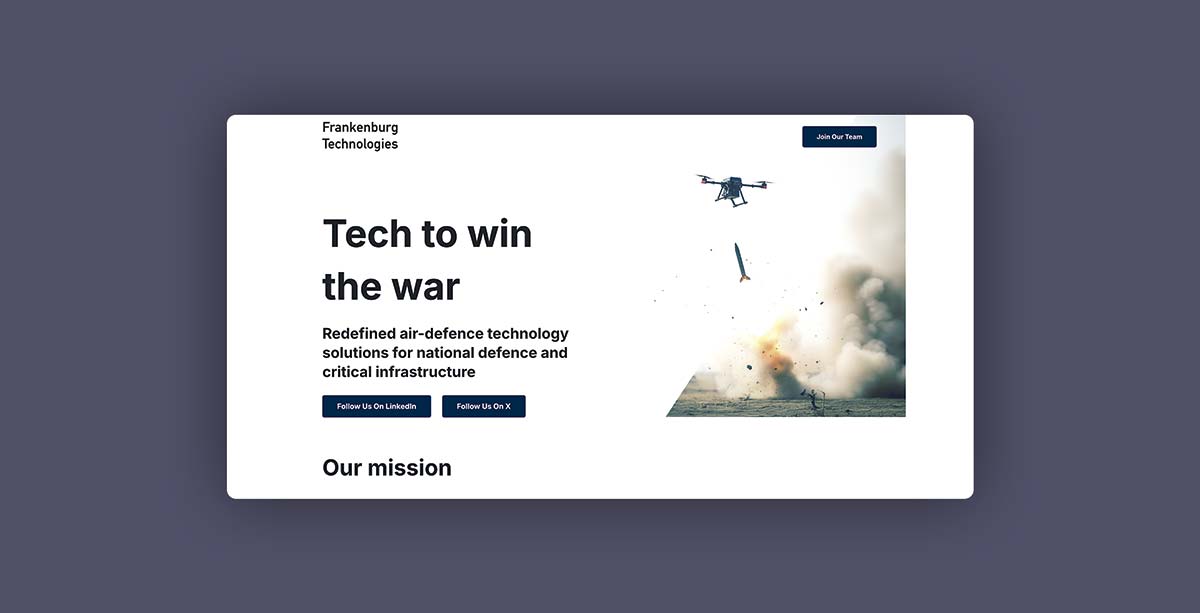

Frankenburg develops advanced, AI-powered missile systems for national defense and critical infrastructure. Its technology enables faster, cost-effective production and enhanced targeting through situational awareness platforms. Focused on scalability and precision, the company aims to outpace traditional defense capabilities and equip allies for modern conflict.


Nanordica medical develops antibacterial wound dressings using Premotiv nanotechnology, blending silk nanofibers with patented nanoparticles to prevent infection and accelerate healing. The dressings are antibiotic-free, cost-effective and clinically proven to outperform silver-based alternatives.
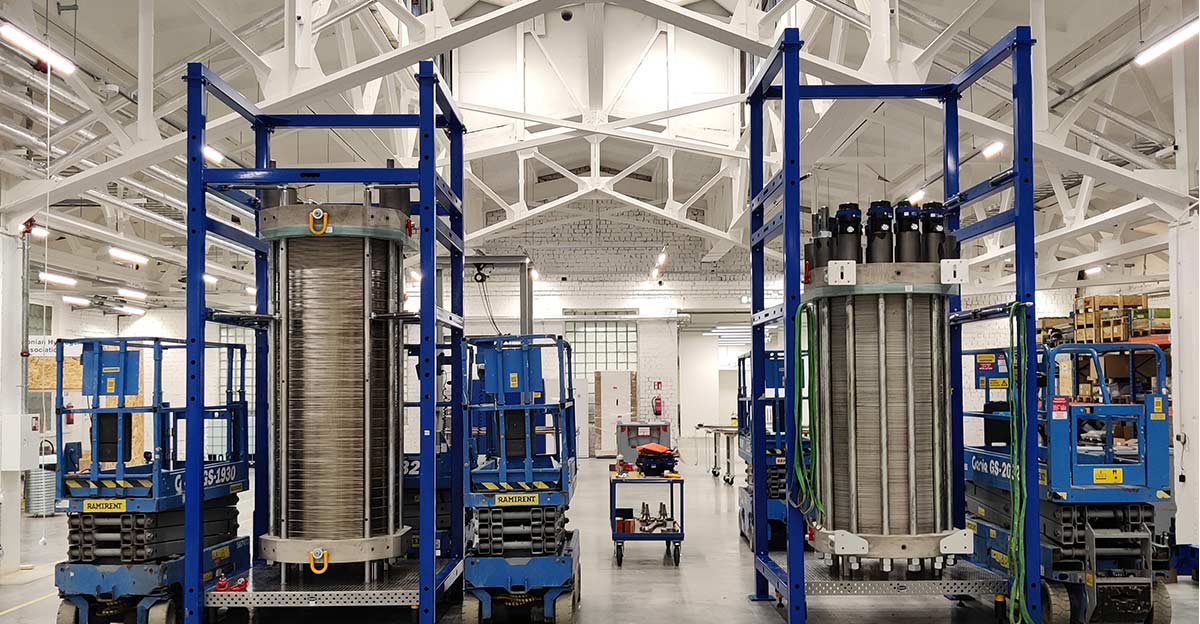

Stargate Hydrogen manufactures high-efficiency alkaline electrolyzers for green hydrogen production. The proprietary ceramic-based catalyst, Stardust, enables low-cost, scalable solutions for decarbonizing heavy industries such as steel, fertilizer and chemicals. Designed for industrial use, their systems operate without critical raw materials.
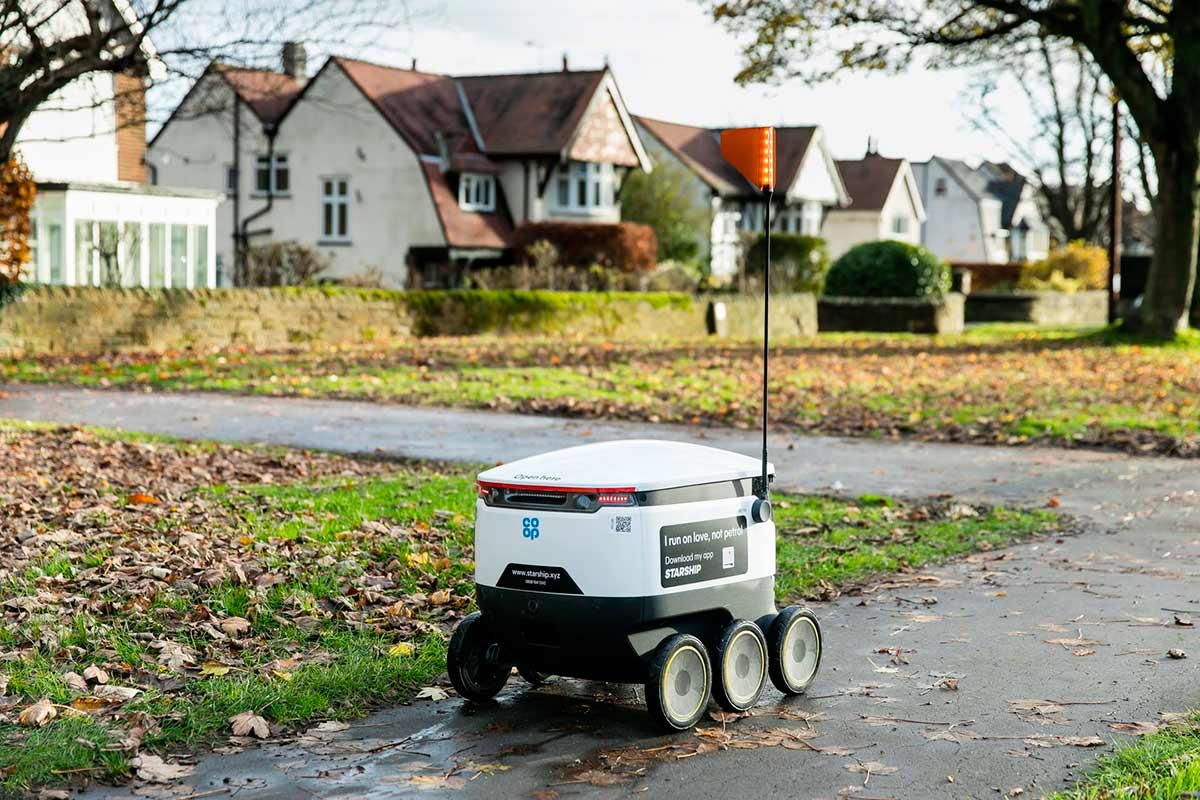

Starship Technologies builds autonomous delivery robots for last-mile logistics, transporting groceries, meals and industrial supplies. Operating 24/7 across eight time zones, its fleet has completed over 8 million deliveries globally, offering a scalable, efficient alternative to traditional delivery methods.
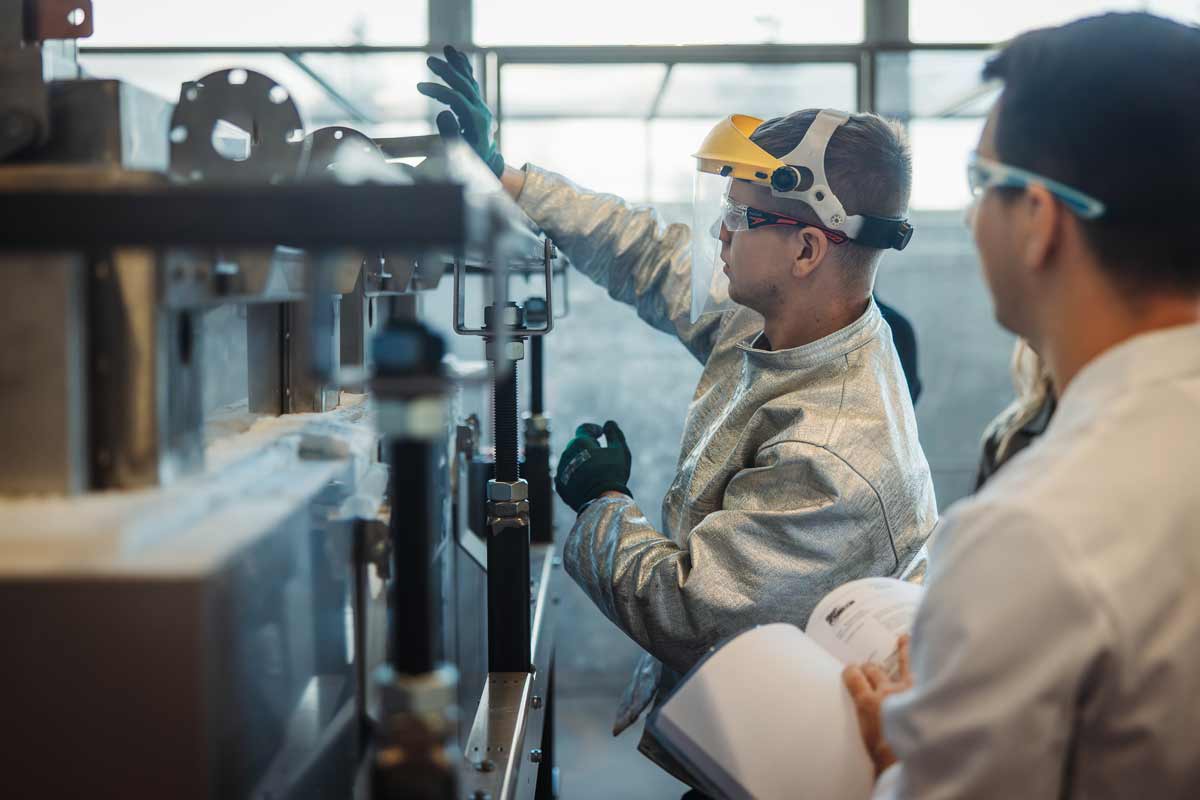

UP Catalyst uses proprietary molten-salt electrochemical technology to convert CO₂ into climate-neutral graphite and carbon nanotubes for EV batteries and advanced industries. This provides Europe with a sustainable alternative to imported fossil-based raw materials.
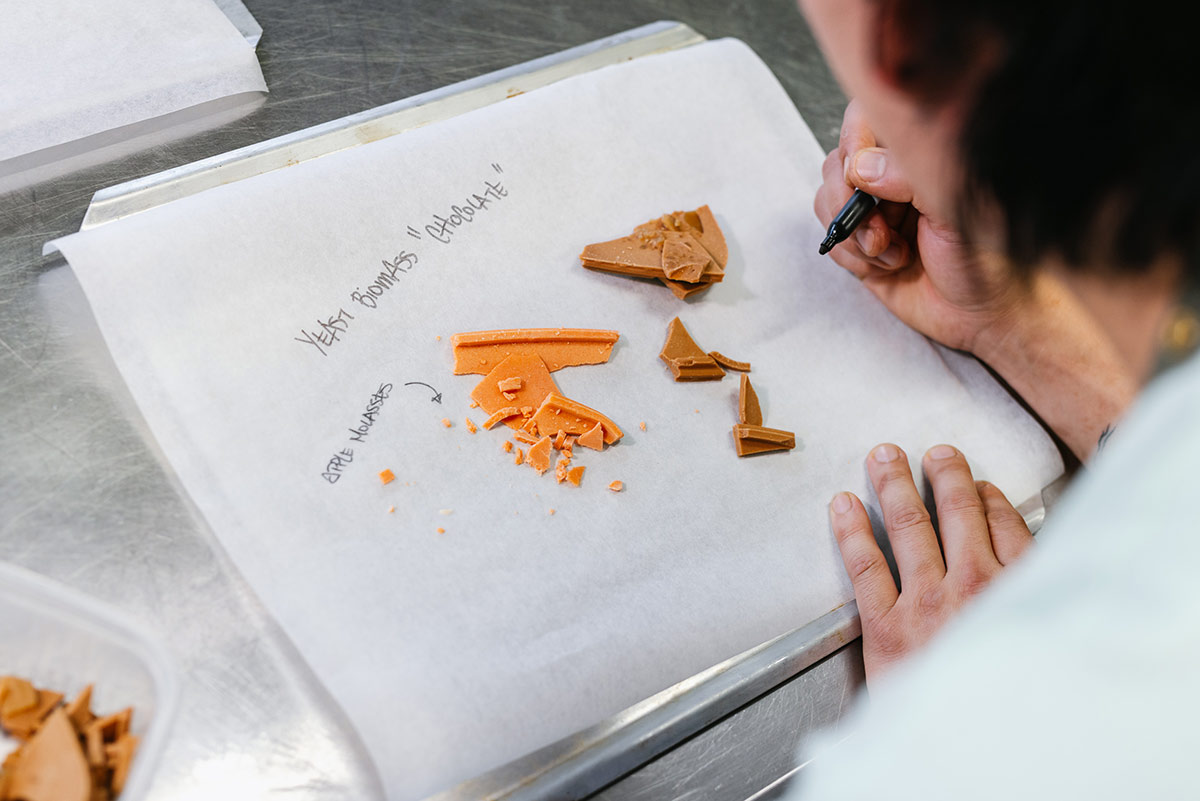

ÄIO develops sustainable, microbials fats and oils through fermentation, producing high-value alternatives to palm and coconut oil, animal fats and petrochemicals. It serves the food, cosmetics and oleochemical industries with encapsulated oils, active emollients and pigments made from local by-products and circular processes.
Programs to know about
Early-stage climate innovators with a technical prototype and regional focus
Beamline is a six-month accelerator for early-stage cleantech startups in energy, smart cities and carbon solutions. It offers sector-specific mentoring, strategic connections and up to €60,000 (~$67,000) investment, combining deeptech expertise with public funding through Estonia’s national green-innovation programs.

Early-stage tech founders applying space tech to real-world industries
ESA BIC Estonia is a two-year incubation program that helps startups turn space-linked technologies into commercial products across sectors such as sustainability, mobility and health. Founders receive funding, technical mentoring, ISP (intellectual property rights) support and access to ESA’s European innovation network.

Ambitious B2B founders
Startup Wise Guys runs intense, mentor-driven B2B accelerator programs across Europe, focusing on SaaS, fintech, cybersecurity, Web3 and PropTech. Founders receive pre-seed investment, hands-on support and access to a global founder–investor community. Each cohort is tailored to its vertical, pairing sector-specific mentors.

Founders developing tech-driven solution
Tehnopol’s Innovation Programme accelerates R&D and product development for startups and public-sector teams using customized program content, expert-led mentoring, and access to technical resources. It’s rooted in real-world needs and a 15-year track record of helping teams innovate with impact.

Funding Opportunities
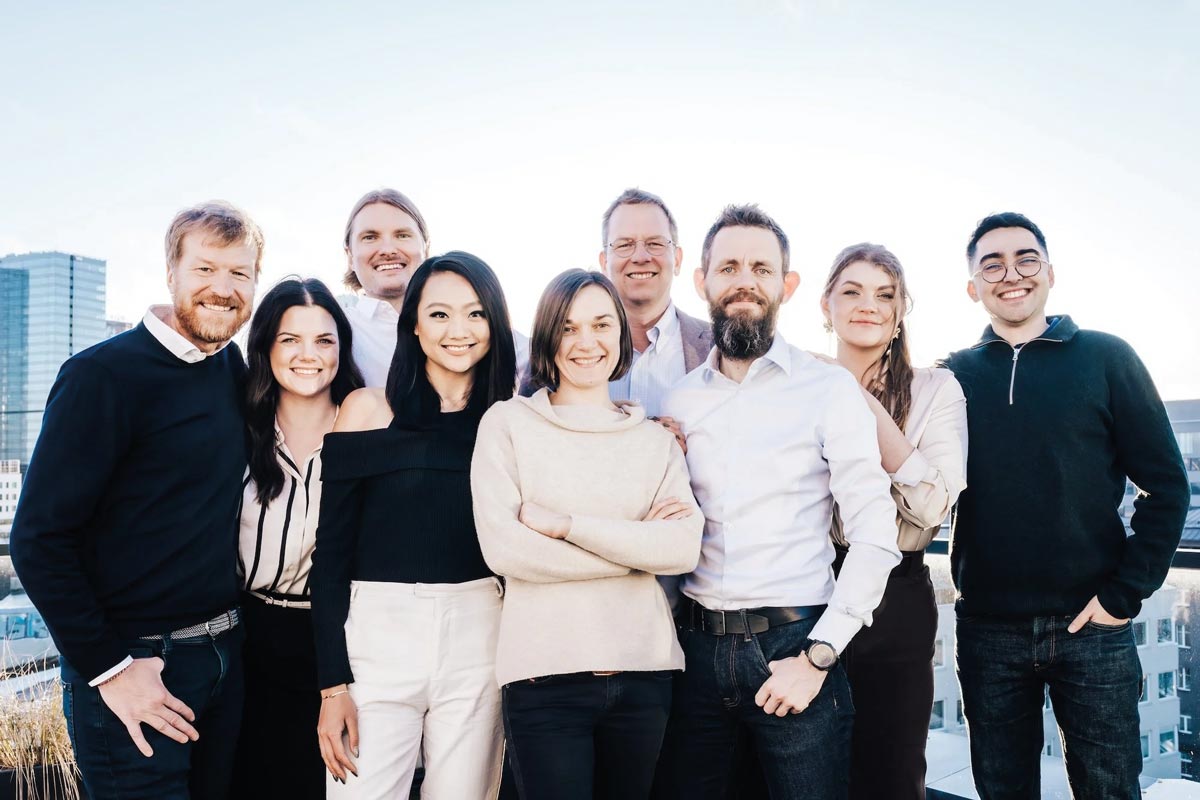

Karma Ventures backs deeptech software startups across Europe at late seed and Series A. It emphasizes partnership over control and brings operational experience, long-term thinking and clarity-driven decision-making to founders who are building globally relevant technologies.


NordicNinja invests in startups focusing on problem areas the world must solve to decrease its vast carbon footprint, from global challenges in mobility to healthcare and digital infrastructure. It combines Nordic innovation with Japanese networks to help ambitious teams scale internationally.


Specialist VC backs early-stage tech founders across Estonia, Latvia, Lithuania, Finland and Ukraine, often through multiple rounds. Known for building long-term partnerships, the firm offers operational insight and access to a network of regional tech leaders and founder-LPs.
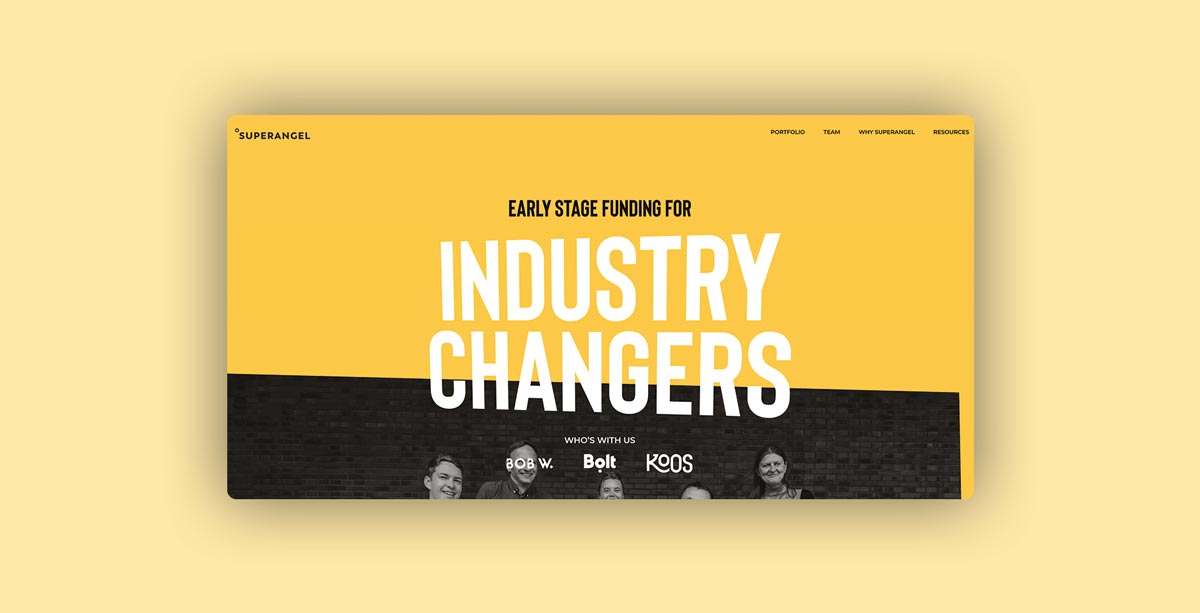

Superangel is an early-stage fund built by serial entrepreneurs, offering hands-on support through a curated network of founders, experts and top VCs. Startups gain tailored guidance, access to industry veterans and founder coaching, plus visiting experts to help build scalable strategies.
Urban Impact Solutions
Kasvuhoone (“Greenhouse”), a play on the words Kasvu Hoone meaning “Growth Building,” is located in North Tallinn’s historic Krulli district and will become the city’s largest incubator for future-oriented businesses. Transforming a 19th-century factory into a 15,000 m² creative and startup campus, the project brings together startups, artists, architects and social initiatives with the aim to grow a collaborative community grounded in innovation and impact. Designed by COBE and KOKO Architects, Kasvuhoone's heritage architecture will open its doors in 2027, strengthening Tallinn’s innovation infrastructure and inclusive urban growth through creative exchange, local partnerships and a focus on long-term societal contribution.

GreenTwins, a cross-border urban-planning initiative linking Tallinn and Helsinki through digital twins (digital replicas of the cities), integrates built environments, public participation and vegetation. By layering 3D models of plants with seasonal changes and growth data, it enables citizens and planners to visualize how their green spaces could evolve over time. Tools like the Virtual Green Planner and Urban Tempo allow collaborative design and immersive visualization of climate-adaptive landscapes. GreenTwins also includes AvaLinn, a high-tech planning hub in central Tallinn, where stakeholders (regardless of digital literacy) can co-create greener urban futures. The project fosters more inclusive, climate-aware decision-making in Tallinn's urban development.

Test in Tallinn, the city’s flagship urban innovation program, offers startups and scaleups a real-life testbed for green and digital solutions. Focused on mobility, energy efficiency and renewables, it provides direct access to city infrastructure, data and expert support. Companies can trial their technologies on-site with guidance from municipal teams, helping them gain references, user insights and market validation. Thanks to Tallinn’s legal frameworks, digital infrastructure and open public mindset, projects can be implemented efficiently and visibly, transforming urban challenges into scalable solutions. From engaging citizens to securing pilot locations, the city facilitates every step, reinforcing its role as an innovation hub.




